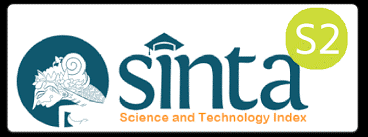Relationship between Family Support and Attitudes Towards the Independence of Post-Stroke Patients in Performing Activity Of Daily Living (ADL) At the Neurology Polyclinic of RSUP Dr.M.Djamil Padang In 2017
DOI:
https://doi.org/10.35730/jk.v9i2.360Keywords:
Stroke, family support, attitude, independence, activity of daily livingAbstract
Stroke is the first cause of serious disability in the world. In general, the condition of patients post-stroke experience interference on the part of the lower or upper extremities and difficulty in speaking. So patients post stroke should routinely perform the activity of daily living to increase self-sufficiency in post-stroke patients. The purpose of this research is to know the relationship of family support and attitude toward self-sufficiency in post-stroke patients in performing the activity of daily living in nerve polyclinic at RSUP Dr. M. Djamil Padang year 2017. This type of research is descriptive analytic, cross-sectional design research. The population in this research the entire post-stroke patients who visited the nerve polyclinic at RSUP Dr. M. Djamil Padang totaled 134 people. The number of samples 45 people taken with accidental sampling techniques. the data analyzed in Univariate and bivariate use test chi-square with a confidence level of 95% with a value of α = 0.05. The results showed more than half 75.6% (34) in post-stroke patients have good family support, more than half 73.3% (33) of the patient's post-stroke has a negative attitude. The results of statistical tests obtained P value (≥ 0.05) mean no relation of family support with independence post-stroke patients in performing the activity of daily living and the P value (< 0.05) means that there is a relation of attitude with independence post-stroke patients in performing the activity of daily living in nerve polyclinic at RSUP Dr. M. Djamil Padang It can be concluded that patients in post-stroke that have good family support and negative attitude at minimum need some help in performing ADL. It is therefore expected to nurse or a health team to provide encouragement and explanation of the importance of doing an exercise routine to achieve independence of the ADL.
References
Ali, Zaidin. 2010. Pengantar Keperawatan Keluarga. Jakarta : EGC.
Arikunto, S. 2010. Prosedure Penelitian Suatu Pendekatan Praktek. Jakarta :Rineka Cipta Available from:http://www.ninds.nih.gov/disrders/stroke/stroke.htm.
Azwar, S. 2011. Sikap dan Perilaku Dalam: Sikap Manusia Teori dan Pengukurannya 2en ed. Yogyakarta: Pustaka Pelajar.
Azwar, 2008.Penyusunan Skala Psikologi. Yogyakarta: PustakaBelajar
Badan Pusat Statistik (BPS),2011.Profil kesehatan tahun 2011
Barthel, D, Mahoney,F.I.1965. Functional The Evaluation: The Barthel Index. Maryland State Medical Journal: 14:56-61
Black, J dan Hawks, J. 2014.Keperawatan Medikal Bedah.Edisi
Jakarta :Salemba Patria Diakses tanggal 16 Mei 2015.
Friedman, Marilyn M. 2006. Perawatan Keluarga Teori dan Praktek.Jakarta : EGC
________________. 2010. Buku Ajar Keperawatan Keluarga Riset, Teori, dan Praktek. Jakarta: EGC
Green, W, Lawrence.et.al, Helath Education Planing A Diagnostik Approach, The Johns Hapkins University: Mayfield Publishing Company, 2005
Hadiwinoto. 2011. Panduan gerontologi tinjauan dari berbagai aspek. Jakarta : Penerbit PT Gramedia Pustaka Jakarta Utama
Hariandja,Johanna.(2013). Identifikasi Kebutuhan Akan Sistem Rehabilitasi Berbasis Teknologi Terjangkau Untuk Penderita Stroke Di Indonesia.
Buku Kedokteran EGC
Nursalam. 2011. (Edisi 2). Konsep Dan Penerapan Metodologi
Penelitian ilmu Keperawatan. Jakarta :Salemba Medika
Padila. 2012. Buku Ajar Keperawatan Keluarga. Jogjakarta :Nuha Medika
Purnawan, I. 2008. Dukungan Keluarga. Http://wawan2507.wordpress.com
Karunia, E. 2015.Hubungan Dukungan Keluarga Dengan Kemandirian Activity Of Daily Living Pasca Stroke. Universitas Airlangga. Surabaya
Laserman et al (2012), Keperawatan Keluarga, Teori dan Praktik. Jakarta : EGC
Layanto, A. 2014.Beberapa Faktor Resiko Pasien Yang Berpengaruh Terhadap In Hospital Mortality Pasien Stroke. Program Pasca sarjana Magister Epidemiologi. Fakultas Kedokteran Universitas Diponegoro.
Maryam, et al 2011.Mengenal Usia Lanjut Dan Perawatannya. Jakarta :Salemba Medika
Mubarak, 2012.Kebutuhan Dasar Manusia. Jakarta : EGC
Muttaqin, A. 2011.Buku Ajar Asuhan Keperawatan Klien Dengan Gangguan Persyarafan. Jakarta: Salemba Medika
National of Institute Neurological Disorders and Stroke (NINDS0, 2-15. Stroke.
Notoatmodjo, S.2012. Promosi kesehatan dan perilaku kesehatan.Jakarta : PT Rineka Cipta
_____________.2010.Metodologi Penelitian Kesehatan. Jakarta :Rineka Cipta
Nugroho, 2008.Keperawatan Gerontik Dan Geriatrik. Edisi 3.Jakarta :Penerbit
WHO,2014. Kejadian Stroke Dan Kecelakaan Stroke. Jakarta : Depkes RI
Winardi.2011.Motivasi Dan Pmotivaian Dalam Manajemen. PT Raja Grafindo Persada: Jakarta
Yastroki.2012. Stroke Penyebab Kematian Pertama Di Rumah Sakit Indonesia. Diakses Tanggal 15 Mei 2015, dari http://www.yastroki.co.id
Raeni N, Christantie E, Haryani. 2008. Gambaran Tingkat Ketergantungan Activity Of Daily Living Pada Pasien Stroke Haemoragik Dan Non Haemoragik Berdasarkn Indeks Barthel. UGM.Yogykarta
Rendy, M Clevo dan Margareth TH. 2012. Asuhan Keperawatan Medikal Bedah Penyakit Dalam. Yogyakarta: Nuha Medika
Riset Kesehatan Dasar. 2013. Laporan Nasional Riskesdas 2013. www.depkes.go.id/resources/download/general/Hasil%20Riskesdas%202013. Diaksestanggal 10 Desember 2016
Smeltzer,S. C. Bare, B. G. Hinkle, J.L & Cheever, K.H (2010), Brunner dan suddarth’s textbook of medical surgical nursing.1 th edition. Philadelphia: lippincottwilliams & wilkins
STIKes MERCUBAKTIJAYA.2016.Buku Pedoman Penulisan Skripsi : Padang
Sugiyono, 2008.Metode Penelitian Pendidikan Pendekatan Kuantitatif, Kualitatif Dan R&D. Bandung :Alfa beta
Syarifuddin.2010. Metode Penelitian . Jakarta : Pustaka Belajar
Sylvia, A. 2011.Patofisiologi Konsep Klinis Proses-Proses Penyakit.Jakarta : EGC




